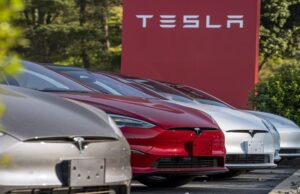
At the outset, may I wish our esteemed readers a happy and prosperous New Year !!!
While the year 2022 is merging with the past and 2023 is dawning in, Africa has hopes and challenges woven together as two sides of a coin- inseparable and entwined. Challenges first! Impact of Covid-19 is receding; but still not petered out. Coupled with that, inflation mostly driven by food shortages, mounting external debts, local currency erosion and other macroeconomic instabilities are still at play. Weighed down by exigencies and insurmountable challenges, which have deeper political and social connotations, like civil wars, sporadic occurrences of jihadist outbursts etc., the overall growth in Africa is pegged at 5%, much due to the underperformance of Nigeria, the largest industrial nation in the continent. The second largest economy, South Africa, though expected to perform a shade better than last few years, when the country was beset with double recessionary trajectories since the financial meltdown of 2008, is not out of the woods mostly due to its power shortages, closure and migration of industries and growing unemployment.
Of course, there are silver linings that one can easily discern. Foremost is the new mindset that is being brought to the fore by many countries in the region , such as incrementally larger role for the private sector, commitment to reduce the debt burden by retiring high rated older loans by availing soft loans , commitment to rein in public expenses, particularly under the revenue head but not compromising with creation of capital assets like infrastructure, renewed focus on agriculture, mainstreaming policies that help address climate change and a host of other well -crafted policy decisions. One can hope these approaches would pay rich dividend in 2023 and beyond.
Yet, there are seemingly policy gaps. Upshot among them is less focus on internal growth dynamics. Africa’s free trade zone, the largest in the world, is now a reality. Do countries keep that as a central point in crafting their domestic policy framework, particularly in lowering duties on goods and services that are front -loaded in the trade treaty. It is a different matter that there is hectic lobbying against lowering of duties from the domestic industry to protect their business interests. A calibrated approach through a negotiated settlement can be an effective pathway.
One area that can be quoted as a trailblazing example is the commissioning of eleven oil refineries in the continent in the coming months, if not by 2024. That will help the continent to substantially increase the capacity to refine the crude that is mined from the continent and value add to it and save the precious foreign exchange drain for the oil producing countries. Should this example be the guiding principle for value adding other minerals like copper, cobalt, manganese etc. It can be further extrapolated to agricultural products, which are exported in the primary form? Cocoa, Coffee, timber, cassava, cashew nut etc can be value added, which can help proliferate processing units across Africa, not only for creating employment and income to the people but also exports.
The new dispensation in Zambia has demonstrated a pathbreaking example of attracting FDI into the country by following a business friendly policy. It is at the verge of revoking the decisions taken by the earlier governments that caused panic among foreign investors by taking over their assets. A case in point is the KCM enterprises’ copper mines owned by India based Vedanta Resources. If one can gauge the talks that are happening at the highest levels in that country, there is a strong political will developing to handover the mines to their former owners. That 360 degree policy change augurs well for inviting investments from more destinations. The decision taken by Uganda in continuing with the works of electrically heated pipeline that goes through multiple countries, despite heavy resistance from some lobbies, is another example that stands apart.
From being industry-friendly to assuming industry leadership is a different ballgame. Happily, there are resounding examples that can be picked up from the continent. Amongst them include the state-owned Ethiopian Airlines, which performed better than most of the airlines in the world in recent times, Dangote Cement, which established a global footprint, South Africa’s telecom network MTN etc are some of the corporations that would become household names sooner or later. Yes, 2023 has hopes, challenges and a huge expanse of ground to be covered for Africa. The trillion- dollar question is how that challenge gets transmitted to the governments, corporations and the civil society at large, to make the continent the most happening place economically.











